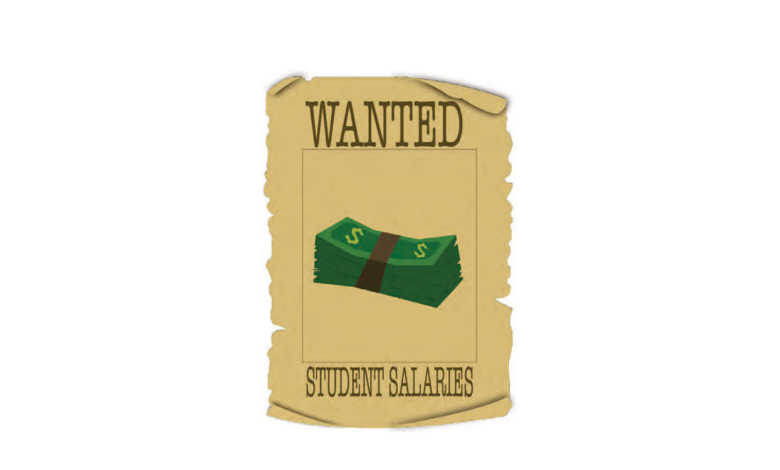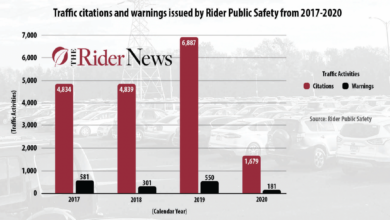
Rider admits to fault in missing student wages
By Amethyst Martinez
After not falling in compliance with a New Jersey wage law, multiple months of students not receiving paychecks and an averted student-worker strike, top university officials admitted their faults this semester.
In an interview with The Rider News on Nov. 14, Rider President Gregory Dell’Omo took “full responsibility” for the wage issues students have faced this semester, and blamed problems on “a lot of human error,” with new payroll employees and trying to implement a different timesheet system.
“Clearly, we’re not happy with the situation. We apologize for the situation, and we want to make sure that never happens again,” said Dell’Omo.
The state law requires every employer to pay the full amount of wages due to its employees at least twice during the calendar month on regular paydays designated in advance, according to the New Jersey Department of Labor and Workplace Development.
However, over 900 students have been affected by the crisis amongst the university’s payroll system, ADP, with some missing paychecks for months at a time.
Stacy Hawkins, a law professor at Rutgers University with a specialization in employment law, said that it seems like the university would be violating a state law.
“It is supposed to regularize wage payments for people so that they know they’re expected to receive their paychecks and that they can plan their lives around that,” said Hawkins. “It is incumbent upon the employer to track hours worked and wages owed.”
Chief Financial Officer James Hartman said in an email to all students on Oct. 26 that those who were missing wages had to fill out a survey to receive their back pay, and stated that the university wanted to “get as many paid as possible” by Nov. 10.
Multiple university officials claimed that issues throughout the semester included personnel changes, system difficulties and more.
“I can go through chapter and verse as to why and how it happened, and that’s important in terms of context,” Dell’Omo told The Rider News. “But it’s more important to say it shouldn’t happen, [and] it can’t happen going forward.”
More than 170 students reported unpaid hours, according to information circulated to supervisors on Oct. 31.
As of the morning of Nov. 14, Kristine Brown, associate vice president for university marketing and communications said that “a majority of all issues were resolved.”
Mark Solomon, vice president of legal affairs at the university, said, “Well, we always seek to be in compliance, right? At no time would I advise my client to do things that are outside of compliance. When we become aware of issues like this, collectively, we’ve got to fix it.”
An averted strike
Two weeks ago, the university averted a student strike amongst a group of Academic Success Center tutors after prioritizing their back pay and paycheck. After the 13 students were paid, they called off the strike, despite other ASC workers not being paid in a timely manner.
At the time, Shane Conto, director of the ASC, confirmed that certain students are still trying to receive their back-pay and that “there have been some isolated situations where some of our student workers didn’t get paid.”
Dell’Omo said, “We never want anybody to feel compelled to strike over a working condition. …We want to do everything we can to avoid anybody having the feeling that they have to do that to get their point across.”
The Department of Labor allows employees to report compliance issues, which can result in fines to the employer.
Currently, the university is trying to get all students off of ADP, and move them to Banner Web Time Entry. An email to students on Nov. 7 stated that, beginning with the Nov. 6 pay period, the university would be rolling out Banner WTE to all student-workers. Throughout the semester, Hartman stated multiple different dates for the rollout in interviews with The Rider News.
The university also invited student workers and supervisors to an Banner WTE open house on Nov. 15, where staff will be available to answer any questions.
“From an HR [human resources] standpoint, one of the first rules you learn is you don’t play around with people’s compensation,” said Dell’Omo.
Managing Editor Jake Tiger and Copy Editor Bridget Hoyt work at the Academic Success Center. They had no part in the writing or editing of this story.


